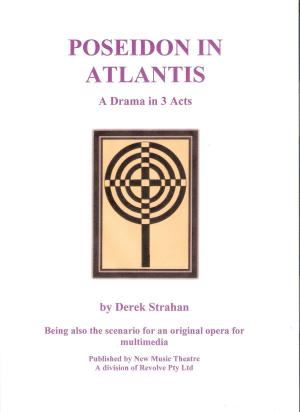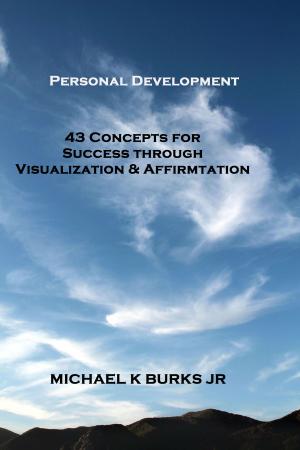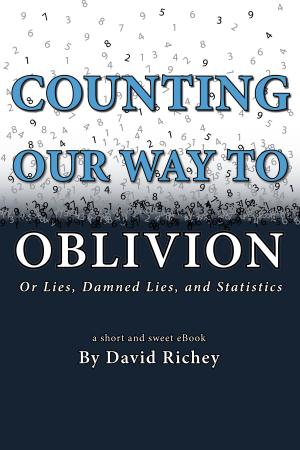| Author: | Dale M. Buegel, M.D. | ISBN: | 9781631924224 |
| Publisher: | BookBaby | Publication: | November 20, 2014 |
| Imprint: | Language: | English |
| Author: | Dale M. Buegel, M.D. |
| ISBN: | 9781631924224 |
| Publisher: | BookBaby |
| Publication: | November 20, 2014 |
| Imprint: | |
| Language: | English |
One can read the words about the practices and philosophies of yoga in many books. Alternatively, one can choose to do the practices and observe the results. One must consider whether now is the time in life to examine such practices? When students would ask my teacher how many lifetimes of yoga practice it would take them in order to experience the state of samādhi, he would say “Why not now, in this lifetime?” Are you ready to experience the Divine in this lifetime, or are you content to wait until death and beyond to potentially have that experience? Do you wish to know your history before you transitioned into this life? Do you wish to understand that creative force which gave rise to you? Before you die do you wish to know where your consciousness will go after death? “Practical Yoga Sūtras” presents a clear commentary on the ancient text of the “Yoga Sūtras” as well as practices that allow deeper understanding of that ancient presentation of the complete path of yoga. An excerpt from the current text of the first sūtra is as follows: " Now begins the exposition of yoga. Preceding the “Now”, it is assumed that the reader has done a considerable amount of yoga practice in order to be able to understand what follows in this text of the Yoga Sūtras. The “exposition” of yoga is actually to be done by the student through the results of their own yoga practice. While one can read the words of the sūtras, understanding will only come through practice and the grace of insight that dawns when the student is fully prepared to experience those states of consciousness spoken about in the "Yoga Sūtras". The meaning of the word “yoga” can be translated as union, or of binding together. Some think of yoga as the binding of body, mind, and spirit with the Divine. This is similar in meaning to the root word of “religion”, namely the Latin word "religio", which also means to bind together. Practices: From the standpoint of yoga practices, the term “yoga” has several practical meanings of union, or binding together. My teacher helped me experience two of those meanings. The term “hatha yoga” means the union or binding together of the “ha” and the “tha”, the solar and lunar energies, the right and the left energy channels of piṅgalā and iḍā. The right and left energies dance with each other side to side continuously in ordinary states of consciousness. Initially I was taught to experience this energetic dance in the quiet space between the air flows of each nostril. If one attends to the coolness in each nostril during inhalation and the warmth in each nostril during exhalation, one can define two separate air flows, one in each nostril. Looking between those two air flows one can find a space where there is no airflow. In that space between the flows can be felt the energetic dance between the left and the right. The dance was first described to me as the eddy of water behind the tail of a large fish as it slowly swims through the water. Once I could feel the dance in that quiet space, I was then taught to feel the side to side energetic dance moving through the bony part of the nose bridge. Additionally I was instructed to feel the dance between the orbits of the eye sockets which are connected to the energetic petals of ājñā cakra. I was also taught to feel the dance between piṅgalā and iḍā at the indentation above the upper lip, which rests between the right and left prominences of the upper lip. This energetic dance can be felt at any level in the system of cakras, but for many, is more easily felt at ājñā cakra. When the dance comes to stillness, one is able to open a central channel of energy, suṣumnā, which allows one to experience expanded states of awareness. The practices of hatha yoga, prāṇayāma and āsana in particular, are designed to produce a union, a silence of the dance between the right and left energies." This book is written to help practitioners find the balance, health, and bliss that yoga offers.
One can read the words about the practices and philosophies of yoga in many books. Alternatively, one can choose to do the practices and observe the results. One must consider whether now is the time in life to examine such practices? When students would ask my teacher how many lifetimes of yoga practice it would take them in order to experience the state of samādhi, he would say “Why not now, in this lifetime?” Are you ready to experience the Divine in this lifetime, or are you content to wait until death and beyond to potentially have that experience? Do you wish to know your history before you transitioned into this life? Do you wish to understand that creative force which gave rise to you? Before you die do you wish to know where your consciousness will go after death? “Practical Yoga Sūtras” presents a clear commentary on the ancient text of the “Yoga Sūtras” as well as practices that allow deeper understanding of that ancient presentation of the complete path of yoga. An excerpt from the current text of the first sūtra is as follows: " Now begins the exposition of yoga. Preceding the “Now”, it is assumed that the reader has done a considerable amount of yoga practice in order to be able to understand what follows in this text of the Yoga Sūtras. The “exposition” of yoga is actually to be done by the student through the results of their own yoga practice. While one can read the words of the sūtras, understanding will only come through practice and the grace of insight that dawns when the student is fully prepared to experience those states of consciousness spoken about in the "Yoga Sūtras". The meaning of the word “yoga” can be translated as union, or of binding together. Some think of yoga as the binding of body, mind, and spirit with the Divine. This is similar in meaning to the root word of “religion”, namely the Latin word "religio", which also means to bind together. Practices: From the standpoint of yoga practices, the term “yoga” has several practical meanings of union, or binding together. My teacher helped me experience two of those meanings. The term “hatha yoga” means the union or binding together of the “ha” and the “tha”, the solar and lunar energies, the right and the left energy channels of piṅgalā and iḍā. The right and left energies dance with each other side to side continuously in ordinary states of consciousness. Initially I was taught to experience this energetic dance in the quiet space between the air flows of each nostril. If one attends to the coolness in each nostril during inhalation and the warmth in each nostril during exhalation, one can define two separate air flows, one in each nostril. Looking between those two air flows one can find a space where there is no airflow. In that space between the flows can be felt the energetic dance between the left and the right. The dance was first described to me as the eddy of water behind the tail of a large fish as it slowly swims through the water. Once I could feel the dance in that quiet space, I was then taught to feel the side to side energetic dance moving through the bony part of the nose bridge. Additionally I was instructed to feel the dance between the orbits of the eye sockets which are connected to the energetic petals of ājñā cakra. I was also taught to feel the dance between piṅgalā and iḍā at the indentation above the upper lip, which rests between the right and left prominences of the upper lip. This energetic dance can be felt at any level in the system of cakras, but for many, is more easily felt at ājñā cakra. When the dance comes to stillness, one is able to open a central channel of energy, suṣumnā, which allows one to experience expanded states of awareness. The practices of hatha yoga, prāṇayāma and āsana in particular, are designed to produce a union, a silence of the dance between the right and left energies." This book is written to help practitioners find the balance, health, and bliss that yoga offers.















